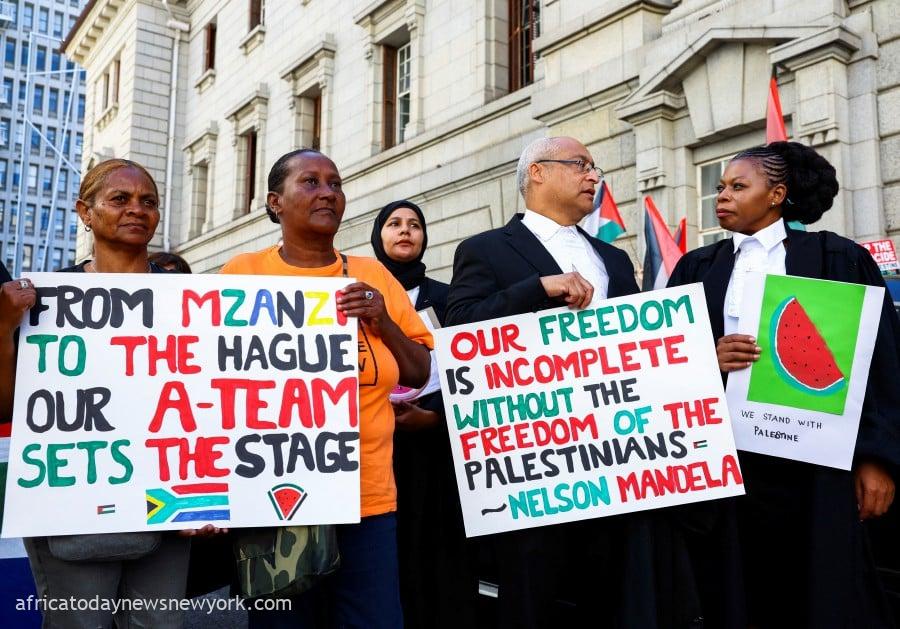Scores of individuals rallied through Cape Town’s streets on Thursday, joining numerous planned demonstrations across South Africa to back the government’s case labeling Israel’s actions as a “genocide.”
Legal representatives from Pretoria are currently making their case at The Hague, the UN’s highest court, as South Africa urgently appeals to compel Israel to “promptly halt” its military activities in Gaza.
Pro-Palestinian protesters gathered on the steps of Cape Town’s High Court, holding signs that emphatically declared, “Stop the genocide” and “Boycott apartheid Israel.”
‘Free Palestine,’ some chanted. Further rallies are planned in Cape Town and other cities.
Robed officials from South Africa and Israel are heading head-to-head before the Netherlands International Court of Justice.
South Africa argues that Israel is breaking its commitments under the UN Genocide Convention, alleging the bombing and invasion of Gaza is “intended to bring about the destruction of a substantial part of the Palestinian national, racial and ethnical group”.
Read also: ‘Genocidal Acts’: South Africa Files ICJ Case Against Israel
‘This case is important to stop the genocide that is currently happening in the Gaza Strip,” Justice Minister Ronald Lamola told national broadcaster SABC as he arrived in The Hague to support the legal team.
Israeli President Isaac Herzog has dismissed the accusations as “atrocious” and “preposterous”.
The solidarity between South Africa and the Palestinian cause remains steadfast, as the ruling African National Congress (ANC) party consistently intertwines it with their own narrative of overcoming apartheid.
Diplomatic relations between South Africa and Israel have been severed in response to Israel’s handling of the October 7 Hamas attacks.
According to official figures compiled by AFP, the attack in Israel resulted in around 1,140 deaths, with a significant majority being civilians.
The Gaza health ministry states that Israel’s relentless assault, utilizing land, sea, and air forces, has claimed the lives of more than 23,000 individuals, with a significant majority being women and children.

